
Hank3's top 5 tips for multi-instrumentalists
Some guys are custom-built for list making, like Shelton Hank Williams – or Hank Williams, if you want to go by his stage name, or even the shorter and snappier moniker of Hank3. The number of instruments he plays is as long and varied as the genres of music he tackles (the latter includes country, punk and metal, and their many different subgenres).
“I do my best, man," Hank3 says. "What I put in my hands usually depends on the project. I mainly play drums and guitar, but I did I take bass lessons from Regi and Victor Wooten when I was younger. I also mess around with clawhammer banjo, mandolin, lap steel and keyboards. It's all there to varying degrees."
Growing up, Hank3 taught himself the basics of recording on a four-track deck. The paucity of available players meant that the budding songwriter and musician had to forge his own DIY route in more ways than one. "If I wanted to get my ideas down and hear the songs the way I heard them in my head, I had to learn to play other instruments," he explains. "Eventually, I got good enough. If it got to the next level and I needed a super solo, I might have brought someone else in. But the experience of working with the four-track helped put me in a different ball park, no doubt."
Of all the instruments he's grown adept at playing, Hank3 reasons that drums came to the easiest. "Some things you're just a natural at, and for me, it's drumming," he says. "I just think rhythmically and percussively, and it's in my hands, too. Playing the piano has been a little tricky for me, and it’s mainly because of my left hand. I have to think more about which notes I'm workin' with my left hand – it's not as instinctive. But I do all right."
On the following pages, Hank3 offers his top 5 tips for multi-instrumentalists.

Feel the rhythm
"Some people are more rhythm oriented, and some folks are more technical players – they can float through intense solos more easily. If you’re like me and you're the type of guy who has a percussive nature in his right hand, you might be more of a rhythm player, and that’s OK. Just feel it out and go with it.
“Try to locate which instrument you’re best suited to as far as rhythm goes. If that’s the drums, then great – you’re all set. If you feel that you have an affinity for the guitar as your primary rhythm instrument, go with that. Get a good foundation going and then move on to other instruments.
“If you’re a super-technical person and you play things that are precise, this might be a different kind of experiment for you. And it’s cool if you do play in an awesomely technical way, but I’d still say that you should explore the rhythmic side of things and try to bring it out as much as possible. Get into grooves. It can open a lot of doors for your music, no doubt.”
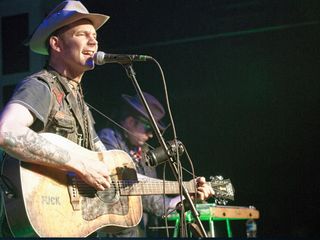
Take a few minutes between instruments
“If you’re going to switch from one instrument to the next, try to take five minutes or so and warm up a little before you try to record a track. Your hand has to adjust to the different feel and tension of the strings if you’re going from fiddle to bass, or even from guitar to bass, and so on.
“Moving from fretted instrument to fretless can be a nightmare, and so can switching from drums – which are so physical in one way – to keyboards. You have to give yourself time to acclimate, no matter what your level of expertise is.
“When I’m recording, I’ll take a few minutes between instruments, especially if I’m going from drums to guitar. I’ll actually have to calm my hands down a little bit – they won’t be able to work the strings properly until I relax a bit. Or maybe I’ll switch from drums to bass because it’s got the bigger strings. Then I’ll go from bass to guitar. You need to gauge your energy on each instrument.”

Don't be fooled by the price
“If you’ve only been playing two to four years, say, you want something nice, but you should try to be realistic with your budget. You don't always have to get the most expensive new models in the stores. There’s a lot of great guitars and instruments out there that have years of life left in them. Check out some second-hand things and not just the new stuff – lots of bargains out there.
“A good used guitar on the road – nothing wrong with it, especially if if gets banged up or stolen or some drunk guy steps on it and what not. You want something that can take a hard hit and can keep on delivering. You don't always get that with something that costs $10,000 instrument.
“Nothing wrong with buying a nice electronic drum kit, either. I felt like I was committing a sin when I bought my first electric drums, but they’re great for practicing and honing your chops. And if you’re in a tight situation or in an apartment, and you worry about the neighbors getting upset with all the noise you’re making, there’s no problem with electronic kit.
“I once heard somebody saying they felt guilty buying electronic drums, but then another guy said, ‘Hey, Neil Peart practices on his.’ That says it all.”

Keep an open mind
“Learn different genres. Soak up different hooks and parts. You might learn how to play a box pattern on one instrument from one particular style of music, and then you can transfer it to something else that’s completely different. But you've sort of turned it into its own thing, something really new and fresh sounding.
“There might be a few forms of music that I haven't dipped into, but I’ve always tried to keep an open mind. Rock and country and Cajun and bluegrass and more metal-style stuff – I’m all over it. To play certain types of music, you might get more on the fiddle and more on the electric bass for another. But then, once you soak it all up, you’re pretty decent at playing a bunch of instruments because you’ve kept an open mind.”

Never be afraid to get anothr instrument
“If you think you’re getting bored with one instrument and things are feeling stale, don’t be afraid to get out there and try something new. If it’s as wild as a sitar or maybe some Asian-type sounds, go for it.
“There are so many sounds that you can explore with technology, but it’s always good to get your hands on the real thing and learn to play for real. That’s something I’ve always enjoyed.
“Sonically, too, don’t limit yourself. Some purists don’t want to put any effects on their instruments, but the second you throw some pedals and effects on that sound, it’s like a new door opens up. Let your mind roam free. Swap up the sounds, swap up the instruments, and get creative. You might think you can't banjo because you're a drummer, but guess what? You can."

Joe is a freelance journalist who has, over the past few decades, interviewed hundreds of guitarists for Guitar World, Guitar Player, MusicRadar and Classic Rock. He is also a former editor of Guitar World, contributing writer for Guitar Aficionado and VP of A&R for Island Records. He’s an enthusiastic guitarist, but he’s nowhere near the likes of the people he interviews. Surprisingly, his skills are more suited to the drums. If you need a drummer for your Beatles tribute band, look him up.
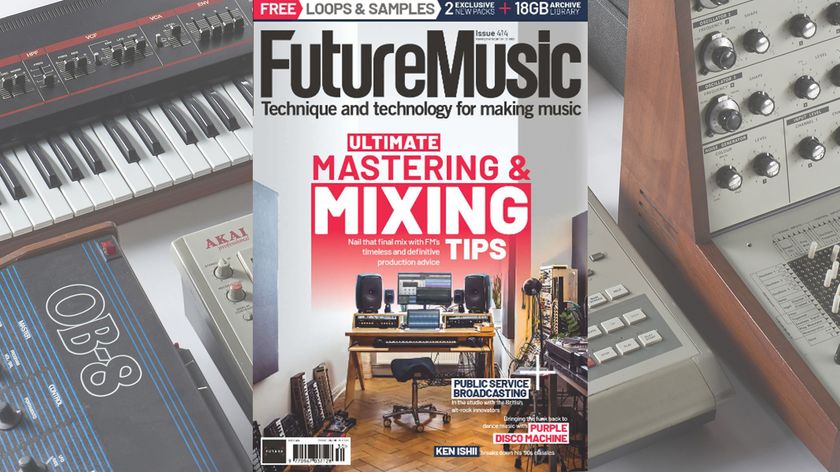
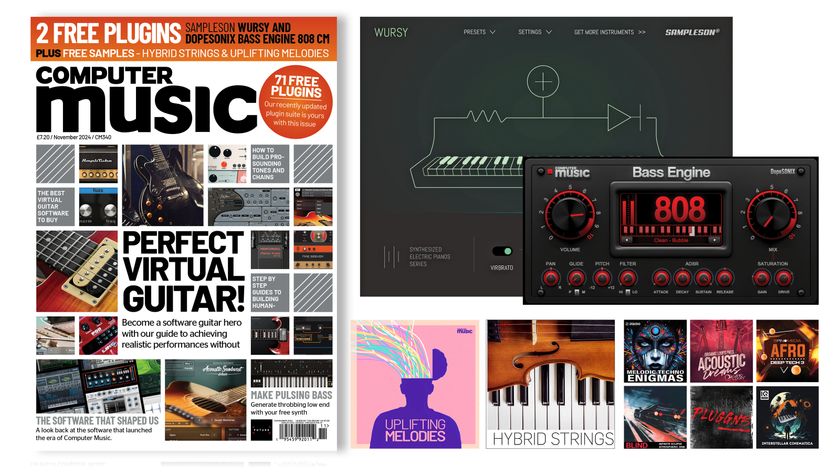
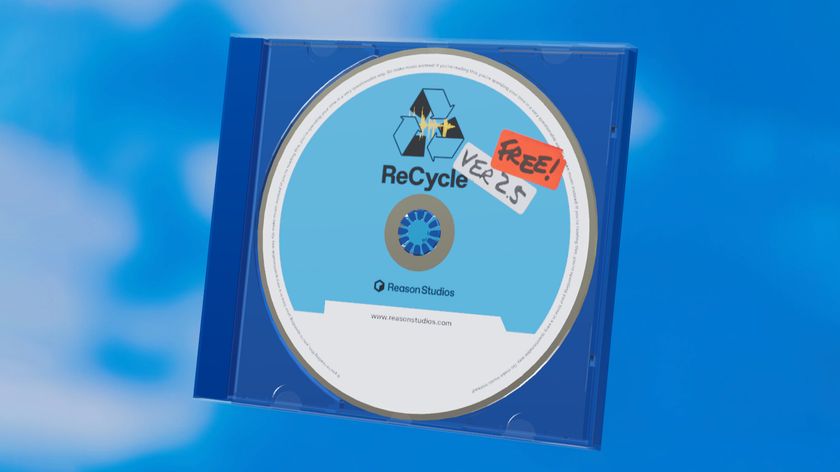

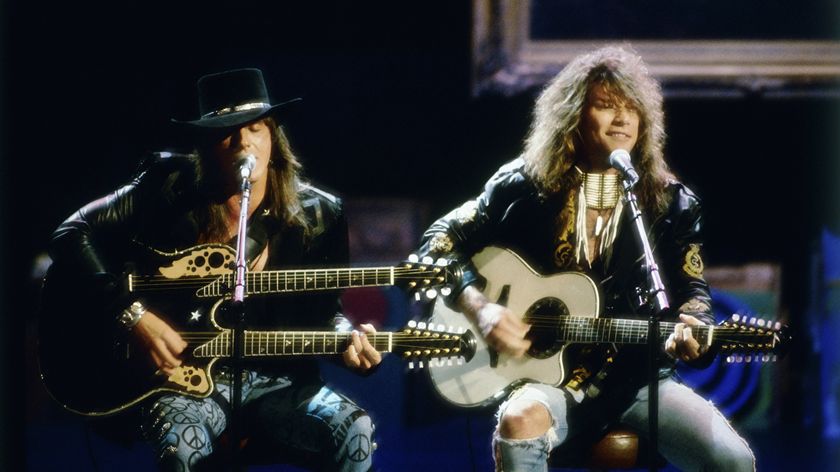
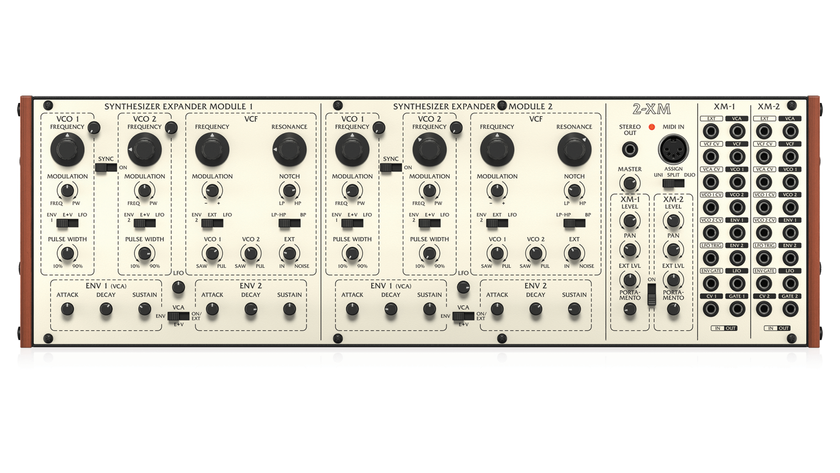

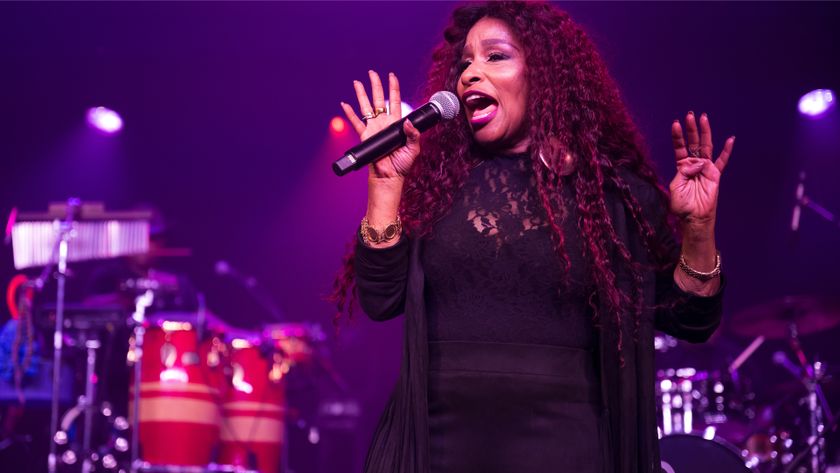
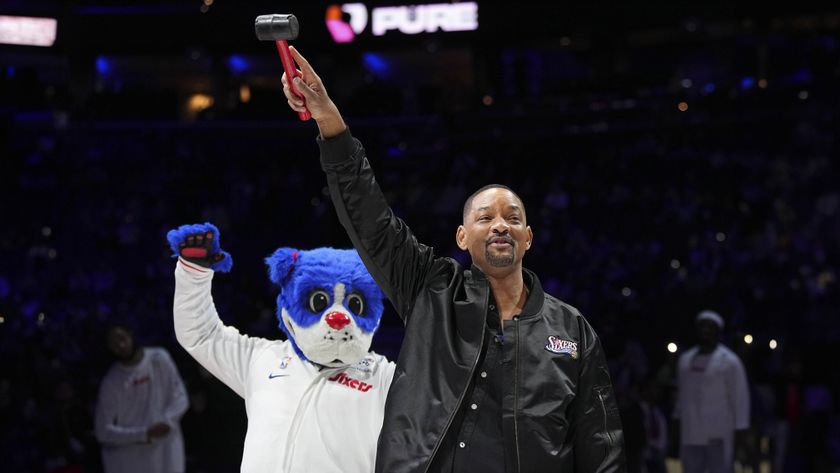


![Chris Hayes [left] wears a purple checked shirt and plays his 1957 Stratocaster in the studio; Michael J. Fox tears it up onstage as Marty McFly in the 1985 blockbuster Back To The Future.](https://cdn.mos.cms.futurecdn.net/nWZUSbFAwA6EqQdruLmXXh-840-80.jpg)